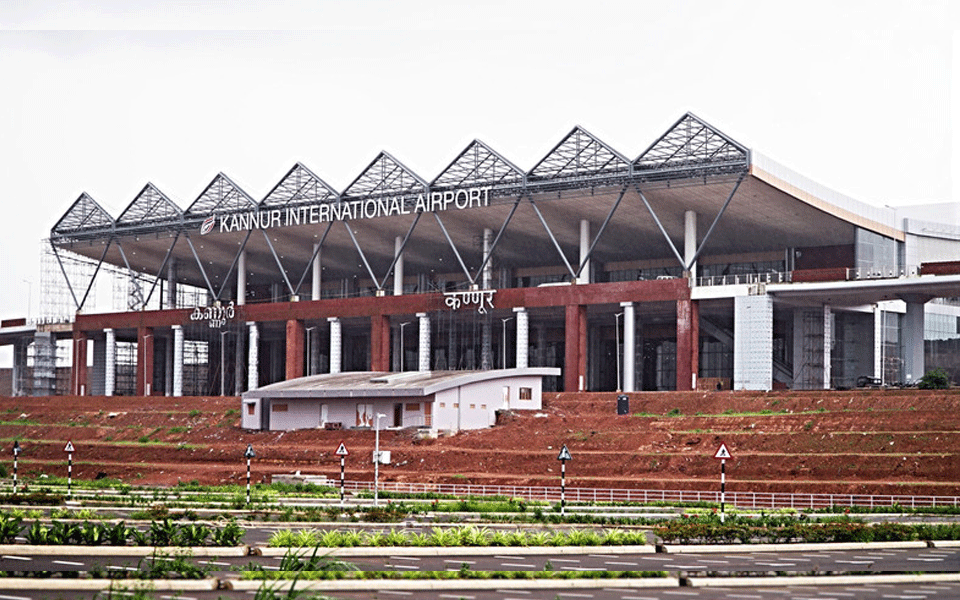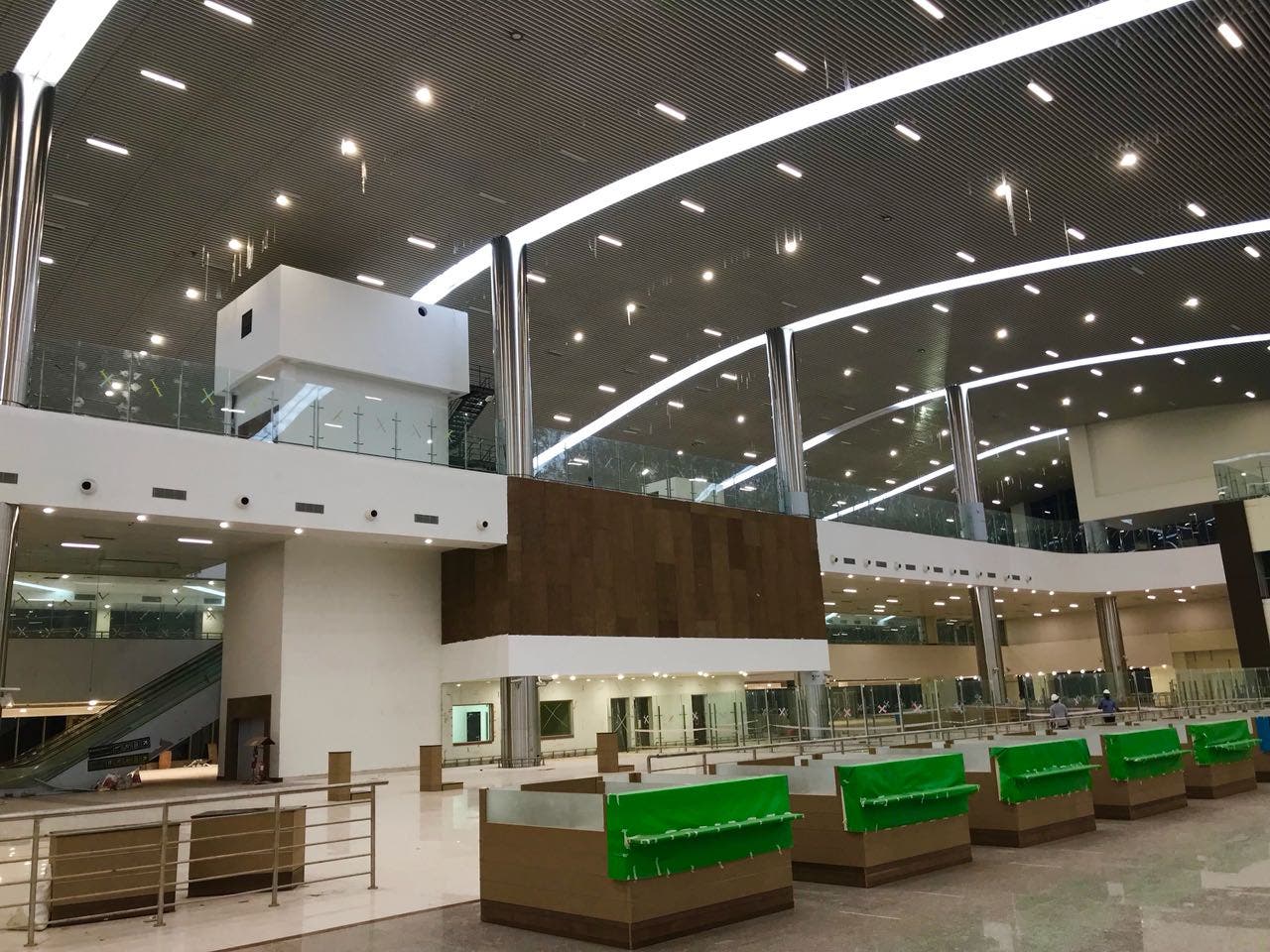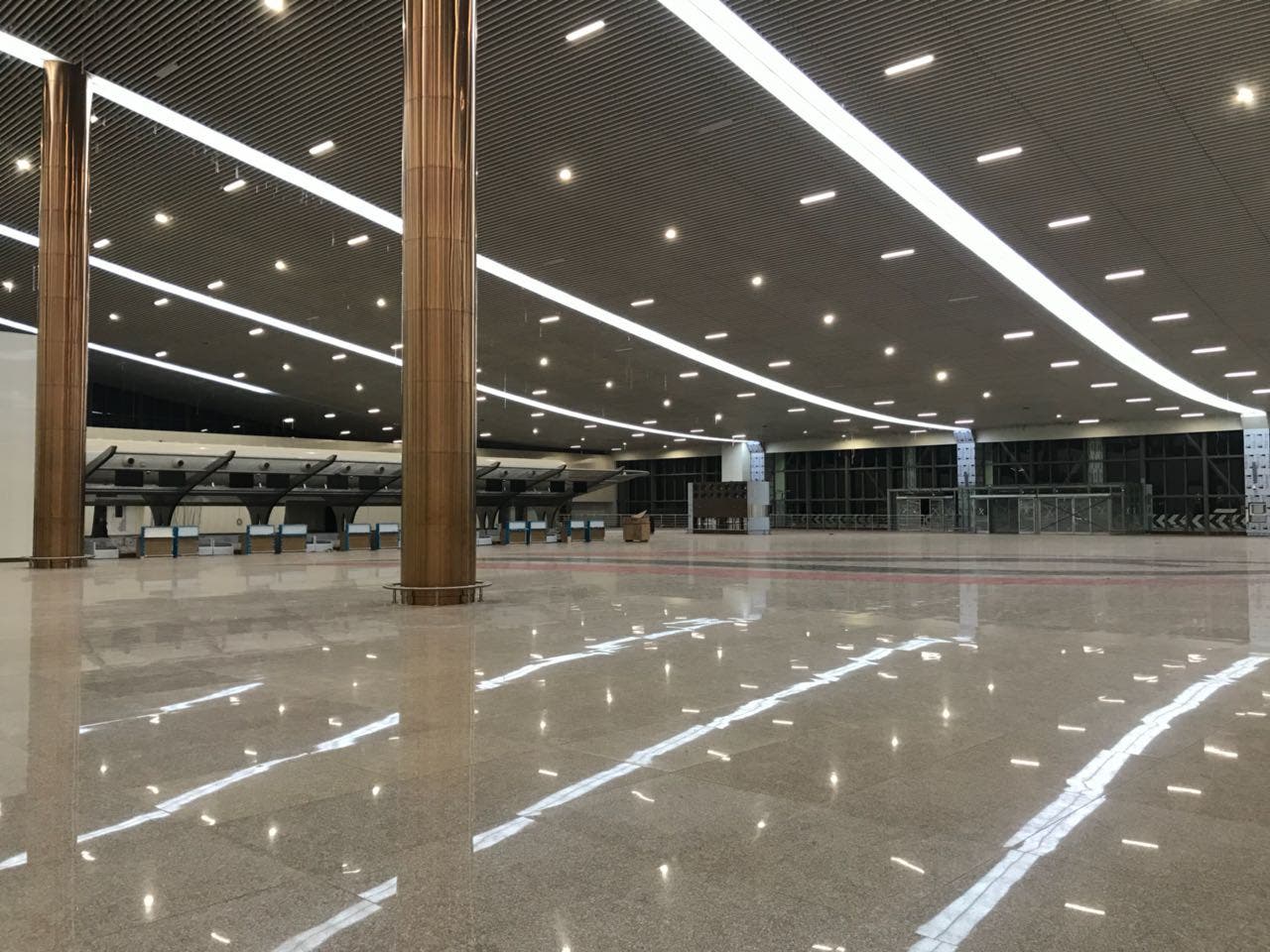The Kannur International Airport in Kerala is set to be a boon for over eight million Indian expatriates living and working in the Gulf Cooperation Council (GCC) countries, a large number of whom belong to the South Indian state.
For expatriates living in and around Kannur, this will has the potential to emerge as another hub in the Malabar region after Calicut. The airport is set for commercial flight operations in September.
With 13 percent of Kannur-Thalassery population employed abroad, the airport located 20 kilometers from Kannur city and in the vicinity of Kannur-Mattannur-Mysuru highway, is expected to facilitate easy travel plans for the locals and nearby places.
Understandably, travelers from the region are excited about the opening. Fazlu Rahman Kaidal, Sales Manager with IME-RS Components, Muscat said: “The opening of an international airport at Kannur will reduce our local travel time. Now we will reach our home within 45 minutes after coming out of the airport. Otherwise, we had to travel all the way from Calicut to reach our home.”
Sameer Ahmed from Kasargod, who owns textiles business in Dubai, says earlier they had to fly to Mangalore airport (in Karnataka) and then hire a cab to Kasargod. “With the opening of Kannur airport, which is located in Kerala just like Kasargod, it will be of great convenience for us,” he says.
Benefit for tourism
Tourism in the area is also likely to reap its dividend as top destinations like Mysuru and Coorg are within easy reach from Kannur.
The airport will serve as a new gateway for tourism development since Kodagu (Coorg) is closer to Kannur and thus enhance connectivity between the two, boosting tourism.
It is highly likely that tourists wishing to visit Mysuru and Coorg may now opt to travel via Kannur airport – instead of Bengaluru’s Kempegowda International Airport – and the itinerary will alter once the airport becomes operational.
People flying to Kannur can skip traffic to reach their destinations such as Madikeri or Mysuru, unlike from Bengaluru.
Profitable hub
K.S. Shibu Kumar, Chief Project Engineer-in-Charge of Kannur International Airport Ltd (KIAL) said that the airport will be able to handle more than 20 landings a day.
Spread over an area of over 2,100 acres and equipped with modern facilities, around six aero bridges, 48 check-in counters and integrated terminal building of 1 million square feet, the airport will be a boon for travelers in this region.
According to him, it is projected to spawn a profitable hub of domestic commercial and residential development, in addition to travel and hotel and allied services generating employment opportunities. The terminal building will have the capacity to handle 2,000 domestic and international flyers during the peak hour.
“Apart from domestic, international connectivity is being offered by Air India Express to eight destinations including Abu Dhabi, Sharjah, Kuwait, Muscat, Doha and Dubai. GoAir is connecting to Dammam (Saudi Arabia), and Jet Airways to Abu Dhabi,” Shibu Kumar said.
“We have also approached MOCA to explore possibilities of opening a bilateral policy to bring in foreign carriers who have keen interest to fly to Dubai,” said Kumar.
Solar-powered
The airport will be able to handle 1.8 million passengers annually and about 80 percent of airport traffic will be international and 20 percent domestic. Kerala’s second greenfield airport, its fourth with the “international” tag, the airport will be soon fully solar-powered and LEED certified.
Nearby airports includes the Calicut and Mangalore international airports. At present, the Mangalore airport handles about 50 aircraft a day – 25 arrivals and 25 departures while the Calicut airport, which has emerged as the seventh top international airport in the country, now operates 60 international movements (arrivals and departures) and eight domestic flights daily.
Taking environment concerns into account the Kerala State Biodiversity Board (KSBB) has instructed the authorities to earmark their corporate social responsibility funds for sustaining the ecosystem in the area.
Media reports last week said that the airport decided to opt out of the bandwagon of regional flights under the Union government’s Ude Desh ka Aam Naagrik (ordinary citizens of the country fly or UDAN) scheme.
Domestic travel
As the focus remains on international travelers, KIAL, the operator of the airport, will not get any revenue from the domestic flights operated under the UDAN scheme as it cannot impose landing and parking, and terminal navigation landing charges on the airline in addition to discounts on route navigation facility.
UDAN is a Government of India endeavor to make air travel to India’s tier II and tier III cities affordable to the common man. The idea is to put smaller cities and remote regions on the aviation map, by getting domestic airlines to ply more regional routes.
Built as a Public Private Partnership (PPP) initiative on Build-Own-Operate (BOO) basis, principle approval to set up the Kannur airport was sanctioned in 2008 by the Ministry of Civil Aviation (MOCA).
In 2010, Government of Kerala formed a company by the name Kannur International Airport Limited and all clearances were received from the federal government by 2013. The construction began in 2014 and is now ready for commissioning.
Courtesy: english.alarabiya.net
Let the Truth be known. If you read VB and like VB, please be a VB Supporter and Help us deliver the Truth to one and all.
Ottawa (PTI): Three Indian nationals have been arrested by Canadian police on an anti-extortion patrol and charged after bullets were fired at a home.
Harjot Singh (21), Taranveer Singh (19) and Dayajeet Singh Billing (21) face one count each of discharging a firearm, and all have been remanded in custody until Thursday, the Surrey Police Service (SPS) said in a statement on Monday.
The suspects were arrested by patrol officers after an early morning report of shots fired and a small fire outside a home in Surrey's Crescent Beach neighbourhood, the LakelandToday reported.
On February 1, 2026, the SPS members were patrolling in Surrey’s Crescent Beach neighbourhood when reports came in of shots being fired and a small fire outside a residence near Crescent Road and 132 Street.
The three accused were arrested by SPS officers a short time later, the statement said.
SPS’s Major Crime Section took over the investigation, and the three men have now been charged with Criminal Code offences, it said.
All three have been charged with one count each of discharging a firearm into a place contrary to section 244.2(1)(a) of the Criminal Code.
The investigation is ongoing, and additional charges may be forthcoming. All three have been remanded in custody until February 5, 2026.
The SPS has confirmed they are all foreign nationals and has engaged the Canada Border Services Agency, it said.
One of the suspects suffered injuries, including two black eyes, the media report said.
Surrey police Staff Sgt. Lindsey Houghton said on Monday that the suspect had refused to comply with instructions to get out of the ride-share vehicle and started to "actively resist."
"As we were trained, he was taken to the ground and safely handcuffed," said Houghton.
A second suspect with a black eye was also injured in the arrest after refusing to comply, Houghton said.
The arresting officers were part of Project Assurance, an initiative that patrols neighbourhoods that have been targeted by extortion violence.
Houghton said the Canada Border Services Agency (CBSA) is also involved because the men are foreign nationals, and the trio may face additional charges.
It's not clear if the men are in the country on tourist visas, a study permit, or a work permit, but Houghton said CBSA has started its own investigation into the men's status.
Surrey has seen a number of shootings at homes and businesses over the last several months, but there's been an escalation since the new year.









